Blog post by ELP Student Emma Grife (Business Admin | Class of 2021)
During my interview for the Business Development position I now hold, my mentor, Richard, asked me, “How do you feel about being told ‘No’?”.
I provided examples of several times I had failed or faced rejection and I assured him that being told “No” would not deter me. As an aspiring entrepreneur, I know entrepreneurship itself is most commonly characterized by unsung failures.
I understood that there was going to be a select few who shut me out and rejected my proposal despite its value because that is the nature of how they operate. What I wasn’t prepared for was the great number of people who go dark. They don’t view your emails, they don’t reply, and they seem not to care about what you have to say.
At the beginning, for me, this indifference was discouraging. I was trying to show the retailers a solution that addressed their pain points but they didn’t recognize that. This failure to reach my target audience helped me develop the following three takeaways.
Know your startup and do your research
In my first week of working at Shoptelligence, my mentor had me quite literally deliver an elevator pitch. Shoptelligence is located in the lower level of the Ann Arbor SPARK offices. There are additional SPARK offices located on the fourth floor that can be easily accessed through using an elevator. Richard, on my second or third day, asked me to give a pitch concerning Shoptelligence that lasted the duration of the elevator ride to the fourth floor. I attempted to do this and failed.
I couldn’t succinctly explain the technology Shoptelligence had created because I wanted to include every fact to give the potential customer a holistic view (Please read about Shoptelligence!! They have created a new technology poised to revolutionize eCommerce sites). However, a holistic view is not what a potential client wants to hear in a first encounter. Above all, a potential client wants to learn about how your product could be of value to them and solve their pain points.
My new pitch sounds something like this:
Shoptelligence has created an AI powered STyle Discovery platform that offers dynamic, curated, cross-category ensembles. By understanding sku-level information on each product (material, patterns, textures, context, etc…), our STyle Discovery platform showcases cross-category suggestions around a single “anchor” item (sofa, chair, etc…). Basically, we help our clients recreate what an in-person sales consultant would pair with items of interest to “bring the room together.” The results are increased average order value, cross-category product awareness & overall engagement for the website. Our technology is applicable to the furniture and apparel industries.
This pitch touches on why (Why should I care?) as well as the what (What is it?) and how (How does it work?).
It is OK to hit the “send” button
In my case, and in the case of most startups, I had nothing to lose. A startup’s main concern is to develop a quality product, attract customers and sustain business. My job is to connect Shoptelligence with applicable retailers. I have been reaching out to Founders, CxOs, VPs, Directors and Managers that work at companies with $2 million/yr revenue to $200 million/yr revenue.
Additionally, in a business development role – you need to be comfortable sending content into the void. The majority of your emails, phone calls, and physical mail will go unanswered. It takes a succinct message that addresses the client’s pain points to inspire a reply. Often, it takes multiple touches with different messaging and content to get a potential client to respond. Strategically navigating “the void” with respectful, relevant content will often result in a meeting.
Success doesn’t happen overnight
Unlike having a role in a traditional company, in a startup you are often completing tasks you are ill-prepared to complete or attempting things you have never done before. This often means, you won’t be successful on the first attempt. For me, it was my first three attempts. I drafted messaging and content and spent hours handwriting postcards to potential clients and no one was replying to my touches.
On my fourth attempt, I asked for help from a seasoned sales professional working at another startup that showed me how my messaging could be phrased differently to make it more effective. That mentoring, paired with Udemy courses and Hubspot newsletters, has made a world of difference. I’ve now scheduled more than 6 meetings which is a step-forward for both Shoptelligence and my development in sales.
